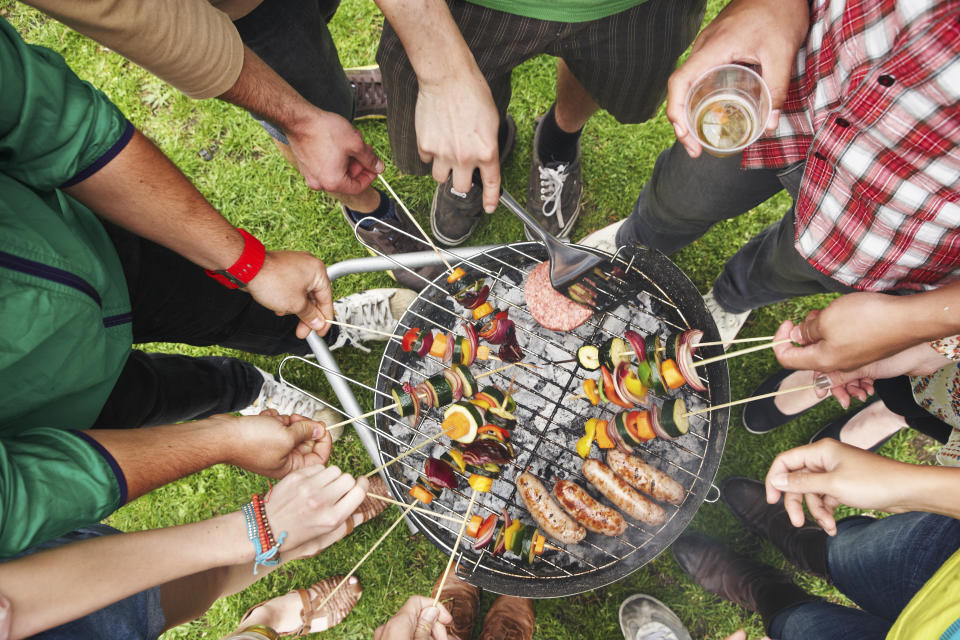CO2 shortage to hit weekend barbecues

The carbon dioxide shortage could hit weekend barbecues amid confusion about when the crisis will abate.
While supplies of beer, fizzy drinks and food products such as meat and bakery products – which rely on CO2 in their production – are not expected to run dry, the Food and Drink Federation (FDF) told the BBC that choices would be limited.
The shortage of CO2 is having a wide-ranging impact, restricting crumpet-making, forcing abattoirs to close and affecting breweries, which is particularly concerning for pubs hoping to boost sales from football fans watching the World Cup.
The government said production was set to start “very shortly”, but when contacted by Yahoo Finance was unable to put a time scale.
The FDF said it was working with government departments to seek a solution. “At this stage, there is still a key question about when a regular supply of CO2 will be available,” an FDF spokesperson said.
“We remain in discussion with a number of governmental departments to establish a clear timeframe and we hope the issue can be resolved as quickly as possible.”
Warburton’s, which usually makes 10 million crumpets a week, is running at 50% capacity after closing two of its four plants because of a lack of CO2 which is used in the packaging process to help keep the products moist.
While supplies of CO2 had been made to one of its plants, Warburton’s said there was “no end in sight”.
“As a result of the ongoing CO2 shortage, we are producing nowhere near the 1.5 million packs of crumpets we usually make each week and have had to suspend production at a number of our bakeries. This will remain the case until the CO2 supply returns to normal. But, rest assured we are working really hard to keep our products on Britain’s shelves,” a spokesperson for Warburton’s said.
The shortage of supplies of CO2 – a by-product of making ammonia used in fertiliser production – has already forced wholesaler Booker to restrict supplies of some beers and carbonated drinks.
Fertiliser plants are often shut in summer but the shortage has been created by lower production of ammonia during the year because of low prices.
A spokesperson for Booker said: “Due to the international shortage of CO2, we are experiencing some supply issues on soft drinks and beer. We are currently working hard with our suppliers to minimise the impact for our customers.”
The CO2 shortage has coincided with a period of increased demand for beer because of the warm weather and World Cup. JD Weatherspoon is said to have to run out of John Smith’s and Strongbow in some of its pubs.
However a spokesperson for Heineken, which supplies those brands, said: “We’d like to reassure beer drinkers that all our breweries are operating at full capacity, and we’re working 24/7 to get beers to our customers as quickly as possible.”
Brigid Simmonds, chief executive of the British Beer and Pub Association, said there were “signs of things improving” and that brewers were “working their socks off around the clock to ensure there is still plenty of beer to go around”.
“Our message to beer drinkers and England fans is clear: keep calm and carry on going to the pub. If your usual beer of choice isn’t available, then why not use it as an opportunity to try something new?” said Simmonds.
The Association of Convenience Stores said local shops were not yet reporting problems with suppliers.
A government spokesperson said: “The government is in regular contact with the UK food and drink sector, CO2 suppliers and trade associations to understand the impacts and timescales for restoration.
“We have been assured CO2 producers are working as fast as they can to get plants up and running again, with CO2 production set to start very shortly.”
On its blog, the Department for Environment, Food and Rural Affairs, said it wanted to reassure businesses and consumers that this is a short-term production issue that CO2 producers are actively addressing.
Ian Wright, chief executive of the Food and Drink Federation, told the BBC: “We will see fewer chicken dishes, fewer pork and bacon dishes. We’ll see probably less carbonated drinks and certainly bakery and other things that benefit from what’s called modified atmosphere packaging, which is plastic package with a tray underneath and a dish of food in them.”

 Yahoo Finance
Yahoo Finance 